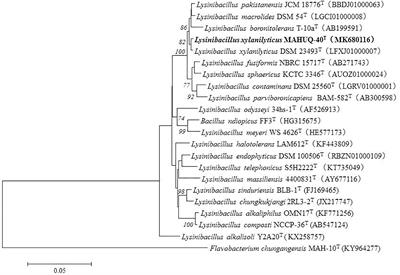ORIGINAL RESEARCH
Published on 05 Oct 2021
Synergistic Antibacterial Potential and Cell Surface Topology Study of Carbon Nanodots and Tetracycline Against E. coli

doi 10.3389/fbioe.2021.626276
- 3,186 views
- 7 citations
3,319
Total downloads
14k
Total views and downloads
Select the journal/section where you want your idea to be submitted:
ORIGINAL RESEARCH
Published on 05 Oct 2021

EDITORIAL
Published on 28 Sep 2021
MINI REVIEW
Published on 07 Jul 2021

ORIGINAL RESEARCH
Published on 26 Apr 2021

ORIGINAL RESEARCH
Published on 16 Dec 2020


Frontiers in Molecular Biosciences